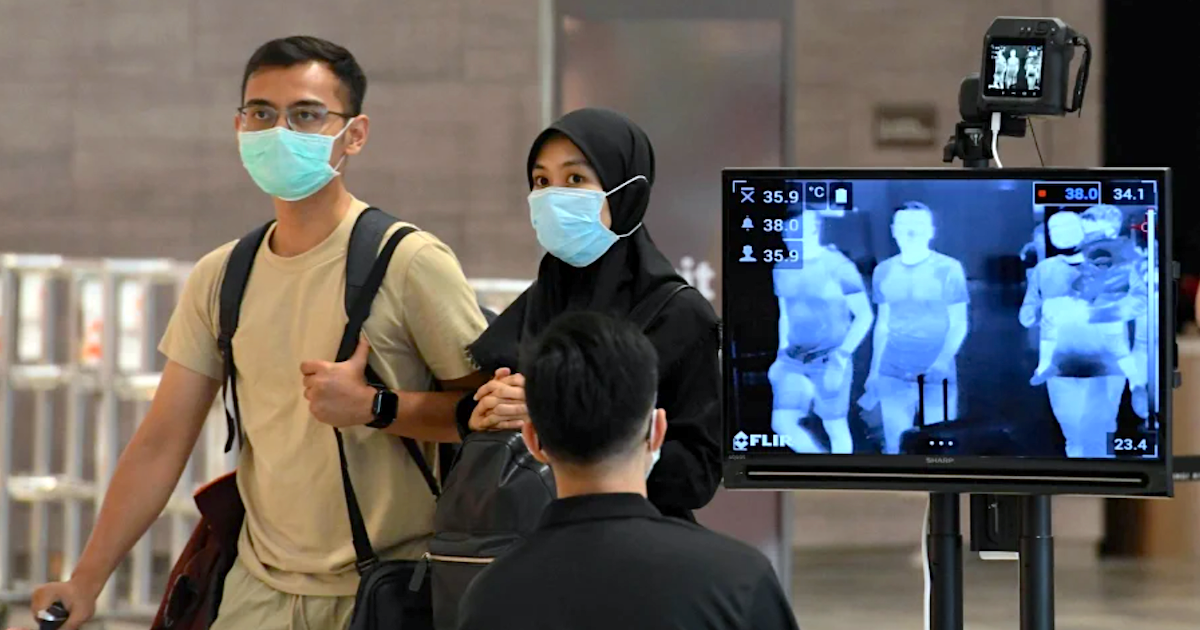To curb the spread of COVID-19, many countries globally have imposed travel restrictions and border closures.
Singaporeans have been advised to defer all travel abroad, all short-term visitors have been banned from entering or transiting through Singapore, and the entry of work-pass holders have also been curtailed.
These travel advisories have resulted in flight cancellations and a reduction in flight frequency, leading Changi Airport to temporarily suspend operations at Terminal 2 and 4.
The travel industry has clearly been hit hard by the pandemic, but these trying times have only fuelled our desire to fly off on a holiday once COVID-19 blows over.
While it’s still unclear when travel restrictions between Singapore and other countries will be lifted, one thing’s for sure: traveling will no longer be the same.
More Expensive Flights
Probably the number one concern is how plane ticket prices will be affected post-COVID-19.
Will airlines offer cheaper tickets for some time after the COVID-19 crisis dies down to lure people to fly?
In the near-term, most likely yes. Based on data from previous downturns such as 9/11 and the 2008 Global Financial Crisis, Dollar Flight Club sees discounts of up to 35% running through to 2021.

However, International Air Transport Association (IATA) director general and CEO Alexandre de Juniac recently warned that the “era of affordable travel will come to an end” as airlines will eliminate the middle seats as part of social-distancing measures.

With fewer seats to sell, unit costs would rise sharply. Airfares could soar by 54 per cent for travelers in Asia Pacific — the highest worldwide — as airlines would be operating at nearly 40 per cent lower capacity if middle seats were eliminated.
It means two things — either you fly at the same price, selling the ticket at the same average price as before and then you lose an enormous amount of money, so it’s impossible to fly for any airline. Or you increase the ticket price for a similar product by at least 50 per cent and then you are able to fly with a minimum profit.
So it means that if social distancing is imposed, cheap travel is over.
– Alexandre de Juniac, director general and CEO of IATA
Extensive Health Screenings And Sanitation
Airlines will need to comply with prevailing health and safety regulations before allowing passengers to get on board.

For some carriers, that will mean asking travelers to produce negative coronavirus test results, or so-called immunity passports, prior to boarding. Last month, Emirates announced it had became the first airline to conduct “rapid” 10-minute blood tests at departure gates.
Airports such as Tokyo’s Narita International Airport and Hong Kong International Airport have also introduced COVID-19 testing for passengers from “high-risk” destinations.
These would be difficult to roll out on an international level, so what’s more likely and practical would be a series of en masse health-monitoring measures such as the infrared body temperature check.
Mask-wearing may be made mandatory as well, since face masks are already common among crew members and passengers.
At the moment, all passengers on SIA, SilkAir and Scoot flights are required to bring their own masks and wear them throughout the flight. They also have to observe safe-distancing measures when embarking and disembarking, as well as when queuing for the bathroom.

Beyond that, airlines are also ramping up hygiene levels in cabins to minimise risk of infection. This means possible restrictions on hand luggage, no more blankets or pillows, cashless payments, and regular disinfectant fogging.
Prior to boarding, luggages might also have to undergo fogging, electrostatic or UV-disinfection, or be ‘sanitagged’. London Heathrow for one, is already starting trials for UV sanitation for its security trays.
Longer Check-In Time
Typically, travelers are encouraged to reach the airport two hours before boarding time.

However, with measures like social-distancing in queues, coupled with more stringent health checks and disinfection procedures, check-in time is now expected to take up to four hours.
Additionally, personalised check-in processes conducted by airline ground staff may be replaced by contactless or self check-in options to minimise human interaction.
While such automation generally helps to speed things up, processes such as self-service bag drop may ironically require more time because the limited number of counters cannot possibly accommodate all passengers.
Frequent flight delays may also be possible. 90% of experts expect slower turnarounds between flights due to deep-cleaning of cabins, and the strict following of sanitary measures at airports.
In the near-term however, reduced passengers and airlines traveling to a smaller pool of destinations may help to reduce delays.
Contactless Boarding
The boarding process is also expected to become ‘touchless’ as digital technologies and automation will play a critical role in the future of air travel.

The need to reduce ‘touchpoints’ at airports implies the mandatory use of biometric boarding that allows passengers to board planes with only their face as a passport.
A number of airlines including British Airways, Qantas and EasyJet are already using this technology.
Immigration and Checkpoints Authority (ICA) has also trialled contactless immigration clearance system, which identifies travelers through iris and facial scans. Once the necessary refinements are made, it won’t be long before this technology becomes a permanent feature in our airport.
As of now, Changi Airport, as well as other major airports like Heathrow and JFK, almost exclusively use online check-ins and contactless payments.

Meanwhile, AirAsia Group recently announced that it has rolled out contactless procedures in response to COVID-19, including contactless payment options, kiosks, and enhanced features on its mobile app.
It will also introduce a passenger reconciliation system, where boarding passes need not be exchanged between passengers and security as passengers will scan them instead.
AirAsia has also digitised the boarding process by scanning all boarding passes at the boarding gate instead of collecting stubs.
Changes To In-Flight Services And Entertainment
Many airlines have announced that they will suspend catering for short-haul flights, while services for long-haul flights will be reduced so passengers will have to get used to less or no frills.
For Singapore Airlines (SIA), it is replacing its hot towel service with pre-set wet towelettes for overnight flights.
It is also removing reading materials from seat pockets, and ceasing after take-off drink service and in-flight duty-free sales.
Other airlines have introduced similar measures including no hot drinks and open foods such as mixed nuts and bread.

On Cathay Pacific, premium economy and economy passengers will get meals in disposable bags, and business and first-class passengers will be served multiple courses all on one tray.
U.S. airlines have removed self-serve snack and fruit baskets, while Hong Kong Airlines has decided to stop offering food altogether, along with amenities like pillows and blankets.
In line with this trend of suspension of inflight catering services, Dollar Flight Club predicts that “we will see pre-packaged meals and drinks left on passengers’ seats before they get on the plane to limit staff interaction.”
In addition, since touchscreen entertainment systems are seen as hotbeds for bacteria, it poses a possibility that they may be scrapped for future flights too.
Remember: Catch Flights, Not Diseases
It’s totally understandable to be wary of travelling immediate after COVID-19 dies down due to concerns of catching the virus in a confined plane.
However, a 2018 study has revealed that the probability of the virus transmitting through cabin air is low.
According to IATA, cabin air is made up of 50 per cent fresh air and 50 per cent recirculated, but filtered air that goes through high efficiency particulate air (HEPA) filters.
These filters capture up to 99 per cent of virus and bacteria particles, but not droplets that land on surfaces when someone near you coughs or sneezes.
To be safe, make it a point to practise good hand hygiene and regularly sanitise your armrests and table-trays with disinfecting wet wipes to guard yourself against germs.
The study also emphasised that the risk of transmission is low for most people on a flight, aside from those in the immediate vicinity and in the same row as the infected person.
In fact, most passengers have zero to one per cent chance of transmission, whether they’re in window, middle or aisle seats. This is due to the fact that, regardless of how much contact they had with other people, these interactions are usually fleeting.
So don’t be paranoid and simply exercise the necessary precautions and you should be safe!
Featured Image Credit: AFP








